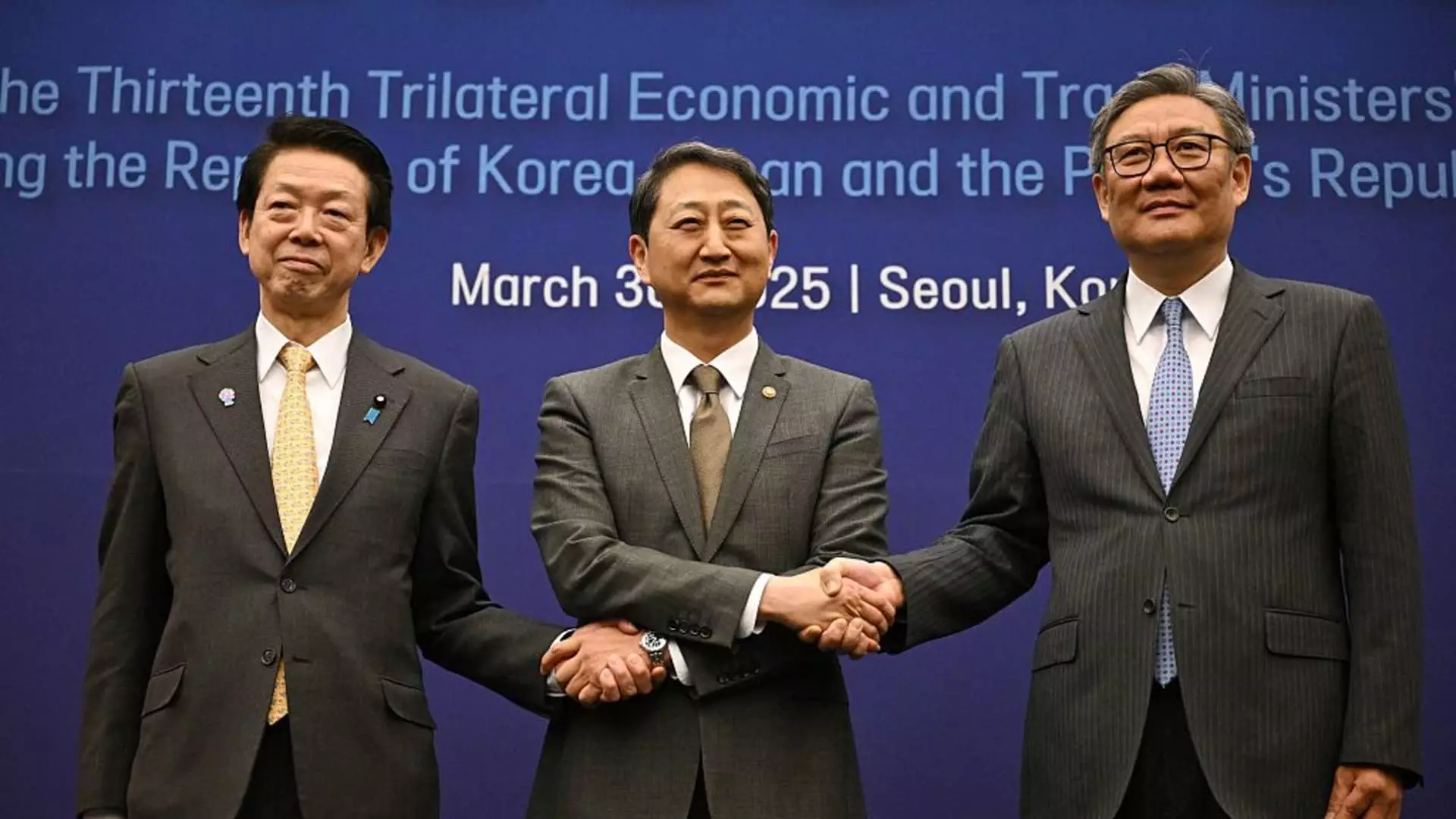In an era where global trade agreements are being dismantled in favor of insular economic nationalism, South Korea, China, and Japan’s revival of their economic dialogue marks a commendable yet daunting attempt at cooperation. As these three Asian economic powerhouses navigate the turbulent waters created by the protectionist policies of the United States, the significance of their initiative cannot be overstated. President Donald Trump’s recent tariffs act as a catalyst, compelling these nations to confront the necessity of collaboration in enhancing their trade relations and mitigating the adverse effects of isolationism.
Bridging Chasms with Tariff Tornadoes
The trade ministers’ commitment to fostering a trilateral free trade agreement feels like a hopeful yet fragile ambition amidst rising nationalism. South Korean Trade Minister Ahn Duk-geun’s emphasis on moving forward with the Regional Comprehensive Economic Partnership (RCEP) is insightful, yet it raises a critical question: can these nations transcend their historical grievances and geopolitical tensions to maintain a steadfast economic alliance? The backdrop of their negotiations is fraught with underlying conflicts—from territorial disputes to environmental concerns like Japan’s controversial handling of Fukushima wastewater. This complexity begs for a negotiation approach that doesn’t merely seek trade regulation but addresses these historical narratives that have long sowed discord.
A United Front or a Paper Shield?
The recently concluded meeting that convened after a five-year hiatus displays the desire for unity; however, it risks being regarded as mere lip service without substantive follow-through. Historically, these trilateral talks have faltered, stagnating since their inception in 2012. The absence of tangible progress in previous negotiations casts a shadow of skepticism over this renewed commitment. Despite the shared economic interests, mistrust remains a significant hurdle, and it is crucial for these countries to develop mutual respect and understanding beyond trade profitability.
The upcoming ministerial meeting in Japan presents both an opportunity and a challenge—how effectively can they translate dialogues into actions that bridge their divides? A genuine commitment to dismantling barriers should not only entail economic expenditures but must also confront and reconcile the underlying unresolved issues that have long plagued relations.
The Economics of Cooperation: A Beacon of Hope
Even in a complex geopolitical landscape, the prospect of collective economic strength offers a ray of hope. While Trump’s approach to global trade presents a stern challenge, it simultaneously provides an opening for South Korea, China, and Japan to redefine their roles in the Asia-Pacific region. By prioritizing trade agreements and cooperation, these nations could form a formidable bloc that not only stabilizes their economies but also posits them as vital players on the global economic stage amidst the rising tide of protectionism.
Indeed, a trilateral partnership possesses the potential to promote “regional and global trade,” as stated in the official communique, but it must evolve into a robust framework for cooperation rather than remain confined to hopeful declarations. If navigated with finesse, the economic dialogue could transform adversities into opportunities, knitting together a fabric of economic interdependence that benefits not just the countries involved, but also sets a precedent for reimagining multilateral trade in a world increasingly hostile to such ideals.


Leave a Reply